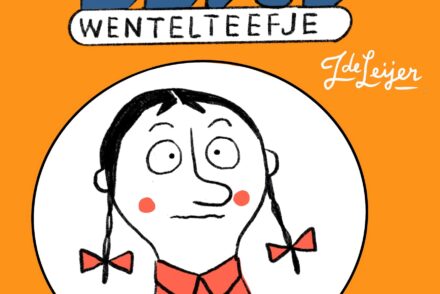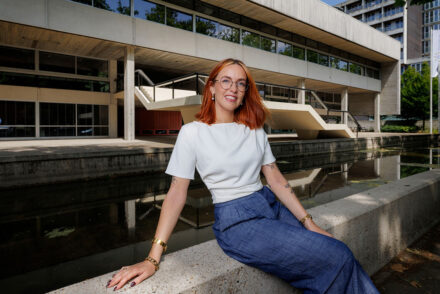To be an adult, or to feel like an adult? That is the question
When you turn eighteen, you are suddenly an adult in the eyes of the law. But do you feel like an adult? And what exactly is adulthood? Developmental psychologist Lisanne de Moor researches the process of becoming an adult. In doing so, she mainly looks at the personal experience. ‘We mirror ourselves to others.’

You are legally an adult at the age of eighteen, but from a social point of view you still have a long way to go. Because then the serious life of graduating, working and (the search for) a permanent relationship begins for young adults. But when you finish your studies, has adulthood also been reached?
Lisanne de Moor of Tilburg School of Social and Behavioral Sciences (TSB) doesn’t think so: “Maturity is largely culturally determined. In the past, you started working, getting married and starting a family around the age of eighteen. But today’s young people are not at all concerned with house-tree-animal.’
‘Life phases such as adulthood are mainly social categories, says De Moor: ‘Just look at our ideas about puberty. A hundred years ago, that phenomenon did not exist.’
Identity development
When are you really an adult, according to psychologists? ‘It’s a good question, because the idea keeps shifting,’ says developmental psychologist De Moor, who mainly focuses on the development of identity: ‘When you are fifteen years old, you think eighteen years old people are already really adults. But as soon as you are eighteen yourself, you often think differently about it.’
When studying personality development, psychologists often look at personality traits, such as emotional stability or orderliness, characteristics that can be measured ‘fairly objectively’. De Moor: ‘But in research into identity development, we ask respondents themselves how they see themselves. And that gives a different picture.
‘In our research, we focus on the stories people tell about themselves. Who am I and how did I become this way?’ says De Moor: ‘And we look at life events, to see whether those experiences have had an impact on the development of your identity and personality.’
Environment
And that is only one side of the story, because identity development is also a social process, in which the opinion of others plays an important role, according to De Moor. What do others think of you? How do they respond to you, and how do you think others think about you?
‘This is a process in which your impressions play a role, in which you attune your attitude and behaviour to the people around you,’ says De Moor: ‘In principle, it is a process that takes place internally, but the reflection with the social environment is an essential part of it.’
Imposter syndroom
Although this development is different for everyone, there are also phases that almost everyone goes through, such as the transition from school or study to finding a job. What does that do to young adults? De Moor: ‘I supervise students who want to do clinical work. For example, they have to give therapy to people while they were recently in school. This can have a major impact on your identity development.
‘And I remember that I had only just started working here and sometimes thought: I’m only a few years older than the students who are here,’ De Moor looks back. ‘Then I sometimes got the imposter syndrome; afraid that they would ask things that I wouldn’t have an answer to.’
In such cases, it can take quite a while before you feel that you are in the right place again, and that you have become a bit more mature.
Big illusion
Psychologists agree that adulthood does not have a fixed starting point in a person’s life. Personality and identity continue to develop. Even after you finish studying and even after your fortieth birthday. De Moor: ‘It’s also quite normal that people around the age of twenty-five don’t have everything in order about who they are and what they want to do with the rest of their lives.
‘Because the feeling of being an adult is also partly in the social comparison,’ says De Moor: ‘When you’re young, you quickly think: other people seem so sure of their case, and I don’t know it all yet. And that is of course a great illusion.
‘That is the story you tell yourself and it becomes part of your identity. We fill it in for others: the person you mirror yourself to already has a job or a house. But if you were to ask the person himself, he or she would say: I don’t really know yet either.’
Grow
‘And we don’t have to,’ De Moor thinks. ‘You don’t have to feel like an adult when you’re about twenty-five years old. It’s fine if you think everything will fall into place, but in any other case you look back on that period five years later and think: I really wasn’t an adult then.
‘So it’s not like you have to start doubting yourself because you’re not in the right place yet,’ says De Moor. ‘What matters is that you look at what you have already achieved, and that you focus on the opportunities you have to grow.’






